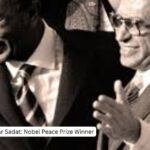Hamza Namira is more than just a singer-songwriter; he is a symbol of resilience, change, and hope in the Arab world. Often described as the “Voice of the Revolution,” Namira has captured the struggles, dreams, and aspirations of a generation through his heartfelt music. His artistry blends emotional depth with social commentary, making him one of the most influential figures in modern Arabic music.
Early Life and Musical Beginnings
Born in Saudi Arabia in 1980 to Egyptian parents, Hamza Namira grew up immersed in both traditional and contemporary sounds. His passion for music was evident from an early age, but he also showed a strong interest in societal issues and personal identity. Moving to Egypt for his studies, Namira began performing with local bands, honing his craft and experimenting with various genres. This combination of diverse influences later shaped his distinctive style, which blends folk, pop, rock, and world music.
Music as a Tool for Change
What sets Namira apart from many other artists is his ability to use music as a powerful platform for expression and reform. His songs often highlight issues such as freedom, justice, identity, and human dignity. During the Arab Spring, his music became an anthem for protesters seeking change. Songs like “Insan” and “Ya Tair” resonated with millions, embodying the emotions of people striving for a better future.
Namira’s refusal to shy away from sensitive topics earned him widespread admiration but also posed challenges. At times, his music faced censorship, yet his message continued to spread, largely through online platforms and global audiences.
Global Recognition and Influence
Over the years, Hamza Namira has gained international recognition, performing in Europe, North America, and the Middle East. His global appeal lies not only in his music but also in his authentic persona. Audiences connect with his sincerity, as he consistently advocates for peace, tolerance, and unity.
His albums, including “Dream with Me” and “Esmaani,” showcase his versatility as both a musician and a storyteller. By blending Arabic folk traditions with modern arrangements, Namira bridges cultural divides and introduces the richness of Arabic music to international listeners.
Beyond Music: A Symbol of Hope
Hamza Namira’s impact extends beyond the stage. He represents a voice for the voiceless, reminding people that art has the power to inspire change. Through his television program “Remix,” Namira has also reintroduced traditional Arabic songs to younger generations, reviving cultural heritage while making it relevant for today’s world.
Conclusion
Hamza Namira is not just an artist; he is a revolutionary voice whose songs continue to inspire millions across the globe. His music captures the essence of struggle, hope, and resilience, earning him the title “Voice of the Revolution.” In an era where art often shies away from political and social discourse, Namira remains a powerful reminder that music can indeed be a catalyst for change.




